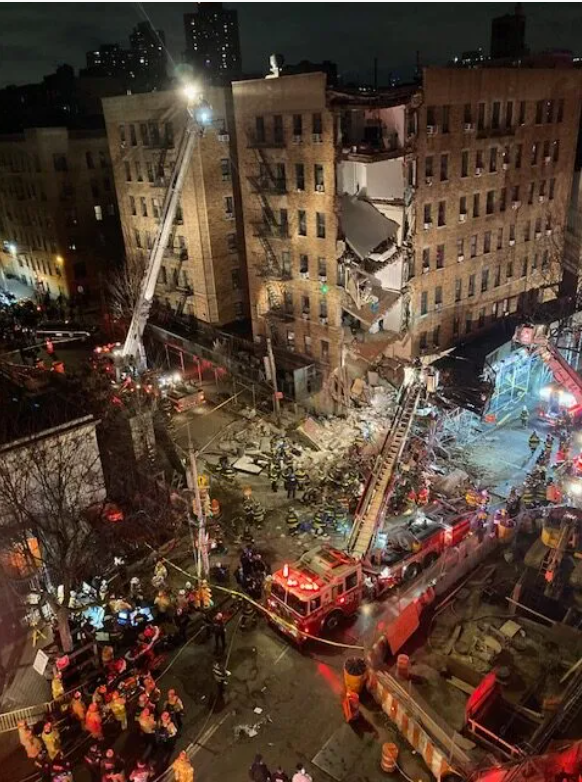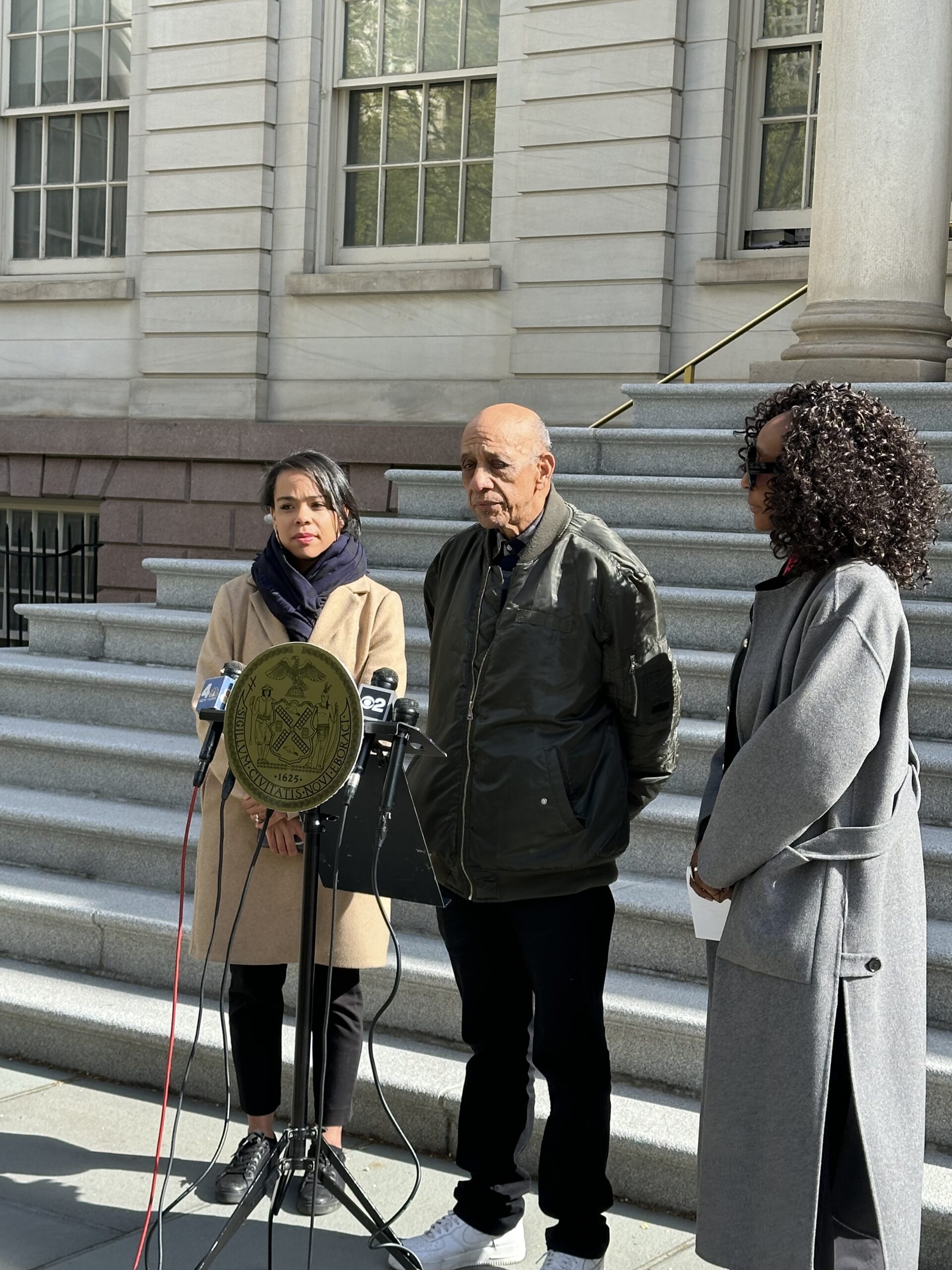
Photo by Síle Moloney
The New York City Council announced on Thursday, June 20, the passage of Int. No. 904-A, a bill designed to establish a first-of-its-kind, proactive inspection program at NYC Department of Buildings (DOB). The Billingsley Terrace Structural Integrity Act was introduced by City Council Member Pierina Sanchez (C.D. 14) on April 25, as reported, in response to the partial building collapse that occurred at 1915 Billingsley Terrace in Morris Heights on Dec. 11, 2023, forcing over 150 tenants to lose their homes, as reported.
“New Yorkers deserve to both be and feel safe in their homes, yet the December 2023 1915 Billingsley Terrace collapse raised concerns about the effectiveness of the City’s practices,” said Sanchez, who is chair of the Committee on Housing and Buildings and who represents Morris Heights, in addition to some or all of Kingsbridge, Fordham, University Heights, Mount Eden and Mount Hope.
She continued, “Over 170 lives were upended when they were displaced by this event, which followed years of neglect and hundreds of violations at this property. The Billingsley Terrace Structural Integrity Act was born of the question, ‘What more should DOB and city agencies have done to prevent this tragedy?’ given the glaring warning signs that existed at the property. In a novel approach, Int. 904 will require the City to identify and act on issues before they become major problems, ensuring a safer New York for everyone. This legislation is the first in a series of changes geared to ensuring that all New Yorkers are safe in their homes and places of work.”
The new legislation aims indeed to identify and address unlicensed work, maintenance issues, and structural concerns using advanced predictive analytics, enhancing the safety and integrity of buildings throughout the city.
Key provisions of the bill include the following:
- Proactive Inspection Program: The bill mandates the creation of a proactive inspection program by the commissioner, utilizing predictive analytics to identify potential safety issues based on factors such as building age, permit and violation history, and relevant 311 complaints.
- Corrective Action Plans: Building owners will be required to submit corrective action plans, prepared by registered design professionals, within 30 days of notification of any identified issues. These plans must include detailed documentation, photos, and timelines for repairs.
- Transparency: Notices about identified conditions must be posted in building lobbies and made available in all designated citywide languages, ensuring residents are informed about building safety issues.
Sanchez said she worked closely with DOB on the bill. For his part, Jimmy Oddo, NYC Department of Buildings commissioner said of the new legislation, “Too many times, we have seen careless property owners fail to keep their buildings safe and neglect their responsibilities. DOB must go on the offense against these bad actors so that we can effectively intervene before a tragedy occurs.”

Photo by Ariel Pacheco
He added, “The creation of a proactive building inspection program will be transformative, allowing us to investigate potential structural issues and protect New Yorkers from dangerous conditions that could turn deadly. We are glad that the Adams administration is making a $4.7 million investment to greenlight this critical program, and thankful to the City Council for its collaboration on this important bill and advocacy for additional funding.”
Meanwhile, Ivan Morel, a tenant at 1915 Billingsley Terrace, who had joined Sanchez during a press conference to announce the bill’s introduction, said of its passage, “Knowing that there will be regular inspections and quick action on repairs gives us peace of mind. This should have been done a long time ago, but we’re glad it’s happening now.”
Morel continued, “Recovering after the partial collapse, it’s reassuring to see the City Council taking proactive steps to ensure our safety. This new law means that we won’t have to wait for a disaster to get the attention and action we need. It’s a huge relief for all of us.”
The bill is set to take effect 180 days after its enactment.




